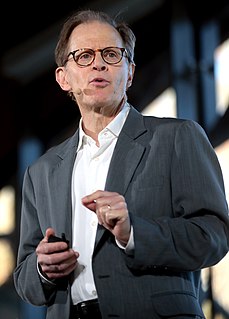A Quote by Jean Vanier
Growth begins when we begin to accept our own weakness.
Related Quotes
Grief allows you to let go of something you have lost only when you begin to accept what you now have in its place. As our mind clings to the familiar, to our established expectations, we can become trapped in feelings of disappointment, confusion, anger, that create our own internal worlds of suffering.
What do you know about yourself? What are your stories? The ones you tell yourself, and the ones told by others. All of us begin somewhere. Though I suppose the truth is that we begin more than once; we begin many times. Over and over, we start our own tales, compose our own stories, whether our lives are short or long. Until at last all our beginnings come down to just one end, and the tale of who we are is done.
What happens when we begin to praise our own abilities? And this is not focusing on an inflated ego, but on appreciation and praise. What happens when we begin sincerely to give thanks for our wonderful minds and our strong and healthy bodies? It's not at all difficult to believe that our own senses of confidence and self-worth are actually activated and strengthened.







































